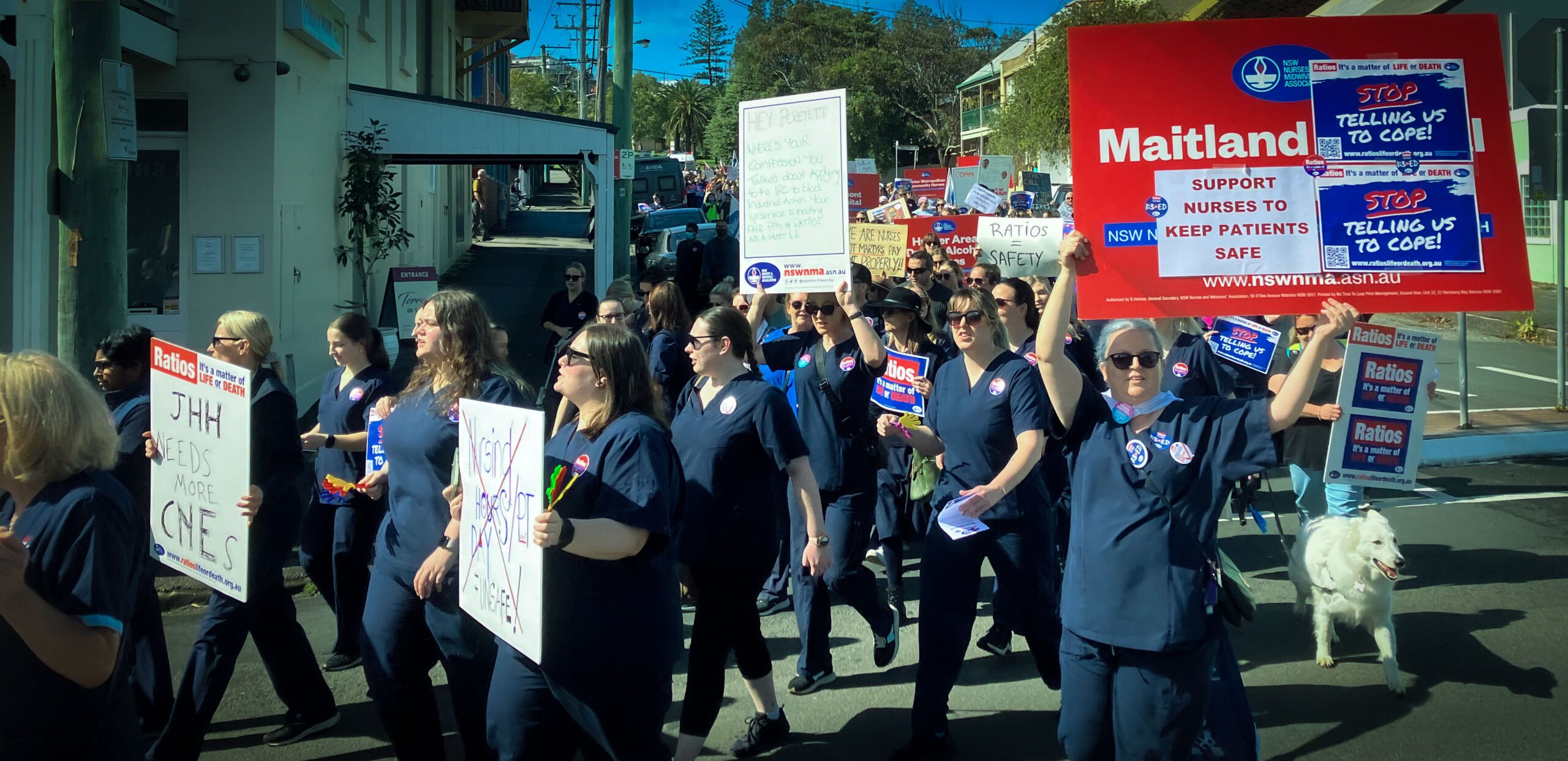Glossary of terms about working life
Glossary of terms
Absenteeism
When an employee constantly or continuously fails to attend work as scheduled. In particular when their absence forms a pattern which suggests that the employee is dissatisfied with their work or that their absence could have been avoided. Absenteeism can be considered grounds for dismissal.
Accreditation
Refers to official recognition by state or territory vocational education and training authorities concerning the contents and standards of a course. This is to ensure sound delivery methods and that curriculum and assessment methods will enable the achievement of the required competency and national standards.
Affirmative
Positive action taken to create a situation which promotes and assists elements of equal opportunity. This can mean removing barriers to equal opportunity in the workplace, such as training women so that they are eligible for a promotion.
Allowances
Payments made to employees that are in addition to their ordinary wage rate to compensate for some particular disability or aspect of work. Allowances are granted to employees working in hot, dirty and confined spaces; where clothing is subject to undue wear and tear; or when an employee has to pay travel or accommodation expenses
Annual leave
Paid leave which is usually four weeks each year. In most cases you are eligible for annual leave after 12 months of continuous service with one employer.
Apprenticeship
A form of on-the-job training where an apprentice is under contract to any employer to learn all aspects of a trade.
Arbitration
When settlement cannot be reached, the Commissioner hands down a decision that binds both parties to resolve the issue. The decision or order may take the form of an award.
Award
Legally enforceable document made by an industrial relations commission which sets out the minimum terms and conditions of employment in an enterprise, occupation or industry.
Bargaining agents fees
In a number of collective bargaining systems, it is common for non-union members covered by a collective agreement to be required to pay a fee to the union for the services provided in relation to the negotiation of the collective agreement. Examples are Canada, the United States, Israel and South Africa. The reasoning behind these arrangements is that employees who benefit from union collective bargaining should pay a service fee in return for the benefits they receive through union bargaining. In Australia the argument is particularly strong, given that the Workplace Relations Act prohibits the exclusion of non-members from union-negotiated certified agreements.
Basic wage
Introduced in 1907 by Justice Higgins in the Harvester case, the basic wage was the minimum amount that an employer could pay their employees. Based on the need to support a family of five, it was regarded as a fair and reasonable wage for a male without regard to the type of job he did or the industry in which he worked. The basic wage was influential in federal award wage decisions until the mid 1960s when it was replaced by the minimum wage.
Bereavement leave
A small amount of paid leave included in some awards and agreements that allows an employee to take time off work on the occasion of the death of their spouse, defacto partner or a close relative.
Call back
Many awards provide that an employee recalled to work overtime after having left the premises shall be paid for a certain minimum period.
Career
An occupation selected and pursued as the chief area of employment during your working life. A career usually involves the development of skills and the aim of successive promotions.
Casualisation
A policy in which the employers seek to alter the prevailing pattern of working arrangements. The change is from mainly permanent full-time employment towards higher usage of casual employees. Unions who have sought to maintain stability and security in employment for full-time employees have generally opposed this policy.
Child labour
When children under 15 are made to do work that is physically or mentally harmful and which interrupts their education or social development.
Code of conduct
Ethics agreement such as those of Australian companies and sporting associations which oppose the purchase of any goods or services produced by children.
Collective bargaining
Collective bargaining is where a group of employees negotiate their terms of employment with their employer. This is in contrast to negotiating individually with an employer.
Common law contracts
The contract of employment operates subject to common law, statute law and award or agreement provisions. A contract of employment can exist between an employer and an employee, even if there is no written contract.
Conciliation
Conciliation is a method of dispute settlement through the involvement of a third party who seeks to bring about agreement by the disputing parties. Conciliation is regarded as the initial stage of dispute settlement.
Conditions of employment
This term relates to the terms and conditions contained in contract of employment including wages, hours, leave, overtime, fringe benefits etc.
Confidentiality
Common law implies a duty to protect an employer’s confidential information both during the employee’s employment and after that employment. However, there are a number of steps that must be taken in order to successfully protect the employer’s confidential information. Those steps include:
- an appropriately drafted confidentiality provision in the written contract;
- securing confidential information from all but those who need to use it; and
- making it plainly known to relevant employees that the material is regarded by the employer as confidential.
Post-employment restraint is commonly a complementary provision to the confidentiality clause. Not only may an employee be prevented from using confidential information, it is possible to prevent them from putting themselves in a position where they can use it to damage their previous employer.
Contract of employment
An agreement between employer and employee that is enforceable by law. Employers can override Award pay and conditions on an individual basis by using Australian Workplace Agreements (individual contracts). Know your rights before signing an individual employment contract.
Demarcation dispute
Where two or more unions are in dispute as to which union has coverage of a workplace or a type of work.
Discrimination
Discrimination is when you or a group of people is treated less favourably due to any of the following; race, colour, national or ethnic origin, gender or marital status, disability, religion or political beliefs, sexual preference, age, trade union activity, medical record, pregnancy.
Dismissal
When your contract of employment is ended by management. In most cases you are entitled to receive notice of your dismissal and be paid for the period of notice and any pay and leave that is owing to you. See unfair dismissal.
Dues
Are union membership fees. The amount you pay is usually determined by the hours you work each week or your earnings. This system is designed to be fair for everyone.
Employee
A person working under the control or direction of another, under a contract of employment in return for a wage or salary.
Employer
A person or organization who employs workers under a contract of employment. Employers exercise some control over their workers and are responsible for the payment of wages or salaries and for providing a safe working environment.
Employment
A contract between an employer and employee in which the employee agrees to provide services under the direction and control of the employer in return for a salary or wage paid by the employer.
Enterprise bargaining
The process which employers and employees use to negotiate set of rules and conditions for their workplaces and which results in an enterprise Agreement. Other terms to describe enterprise bargaining include: workplace bargaining, collective bargaining, over award bargaining and company bargaining.
Entitlements
The rights which you have access to at work such as holidays, sick leave and allowances.
Equal pay
Means that females should receive the same pay as males if they are employed in similar work and under similar conditions.
Green ban
A refusal by employees to work, or allow work to proceed on a project which may result in damage to the environment – either natural or historical.
Home-based work
Unsupervised work performed in an employee’s home which is often a way for parents to strike a balance between family and work. International studies have shown that home-based work arrangements can contribute to improved productivity, reduced absenteeism and improved morale and employee commitment. Home-based work also has a negative side. see outwork
IRC
The Industrial Relations Commission has jurisdiction to deal with employment law and industrial relations matters in NSW and was created by the Industrial Relations Act 1996. The Commission has responsibility for:
- Making industrial awards setting employment conditions,
- approving enterprise agreements,
- resolving industrial disputes, and
- hearing claims relating to unfair dismissals.
Industrial action
An organised disruptive act taken by a group of workers – such as a strike or stop-work meeting. ‘Protected industrial action’ is the term used for a legal strike in Australia. Under the law employees cannot be disadvantaged for being part of a protected action.
International Labour Convention
An international standard which has the status of an international treaty. These standards cover such things as working conditions, equal opportunity, social security, forced labour, freedom of association and minimum age restrictions.
Job delegate
A Job Delegate is a union representative at a workplace. Also known as Shop Stewards, delegates are elected by union members who work at the same workplace.
Junior
A category of pay or status based on age (experience) which is generally inferior to adult pay and status.
Labour market
The total population available to work, whether working or unemployed.
Leave loading
A pay bonus when on recreation leave based on the theory that workers are entitled to extra money because when they are on holidays and they wont be paid extra for working overtime.
Lockout
When an employer locks out their employees during an industrial dispute.
Log of claims
A written set of ‘claims’ or demands presented to an opponent. In industrial relations, once a log of claims is served and rejected, the Industrial Relations Commission (IRC) can hear the matter.
Long service leave
A long period of absence from work, which comes after extended years of service to a company or organisation.
Negotiation
When two parties discuss what they want in order to reach an agreement.
Outwork
Work done at the place of a worker’s choosing, usually at home, in return for money. It is normally carried out without direct supervision by the employer or contractor. Outworkers traditionally are not independent, the do home-based work because of family responsibilities or lack of skills.
Overtime
The time worked before or after your regularly scheduled working hours. When there were very few rules about how long people were required to work, the trade union movement campaigned for shorter working hours. Their catch cry was ‘8 8 8’ – that’s eight hours work, eight hours play and eight hours sleep. So began the idea that if you were required to work more than eight hours in one day you should get paid more for the extra hours.
Parental leave
The entitlement of both male and female employees to take leave when their baby is born.
Payroll deduction
An amount of money which is taken with permission directly from an employee’s pay before they receive it. Apart from income tax, common payroll deductions include superannuation and union dues.
Redundancy
When employees are laid off on a permanent basis because their work is no longer required by the company due to economic, technological or other reasons.
Rehabilitation
Assistance for employees who are injured at work get back into the workforce (into an old or new job) either through therapy, training, or by a gradual process of return to work.
Right to work
The right of workers not to be excluded from employment because of discrimination; the right of workers to employment, a decent living, job protection and compensation.
Settlement
When an industrial dispute is concluded and all of the parties involved agree or accept a compromise. A settlement is also the name for the decision of an industrial tribunal when it resolves a dispute.
Sexual harassment
Any unwanted or uninvited sexual behaviour which is offensive, embarrassing, intimidating or humiliating. It has nothing to do with mutual attraction or friendship. Sexual harassment is a form of sex discrimination and is against the law.
Sick leave
Paid official absence from work granted to employees when they are ill.
Social wage
The benefits to workers which come from a source other than the wage component of their pay packets. The social wage comprises benefits such as: Medicare, superannuation, child care and family payments, including maternity allowance.
Superannuation
The money put aside during your working life for use when you retire. By law, an employer must contribute a percentage of their employee’s wages into a superannuation fund. Superannuation is an additional benefit on top of a wage or salary.
Strike action
Strike action is when employees refuse to work during an industrial dispute.
Telecommuting
Working from home but often linking into their employer’s office via the internet, telecommuters normally work a fews day at home and a few in a traditional office
Trade union
An organisation of employees, which acts collectively for mutual protection and assistance and is often concerned with wages and conditions of employment. Unions represent workers in dealings with employers and government. Many unions also offer extra services to their members such as advice about finances, access to health services, such as dental care, scholarships to help pay for school books or discount movie tickets.
Traineeship
Workplace learning programs offer the opportunity to stay at school, keep learning and start getting the skills and experience needed for a career.
Union delegate
An elected union official with the responsibility of representing union members in a workplace or company. A union delegate is also responsible for ensuring that members understand what is happening with their union and that the union understands the issues which are important to the members in that particular workplace. Also known as a shop steward or a union representative.
Unfair dismissal
Where an employer does not have a valid reason for dismissing an employee and where the dismissal is found to be harsh, unjust, or unreasonable.
Unpaid trial
A common – and illegal – way of exploiting young people who are trying to gain work experience. Unpaid trial work should not be confused with school work experience programs. With formal work experience, clear boundaries are set as to when the work will start and finish and a nominal fee is usually paid. (Internships are a growing cause for concern.)
Vocational education and training
Training or education which focuses on preparing students for a trade or commercial career.
Work bans
Industrial action by workers which includes refusal to carry our selective duties and/or a collective decision to ‘work to rule’.
Work health and safety
WH&S is the general area of concern in employment which covers the physiological and psychological well-being of persons engaged in work. Employers have a common law duty to take reasonable care to guard workers’ health and safety at work.
Workplace culture
Workplace culture may be described as: ‘The collection of unwritten rules, codes of behaviour and norms by which people operate in the workplace.
Work to rule
A conscious reduction of output by workers, by painstaking interpretation of rules such as an industrial embargo. For example, teachers may refuse to attend meetings after school hours. Also known as a go-slow.
Workers compensation
A payment from an employer to an employee for injuries of illness caused at work.







